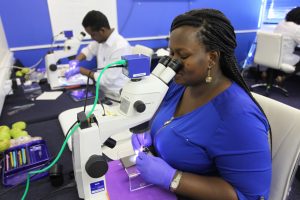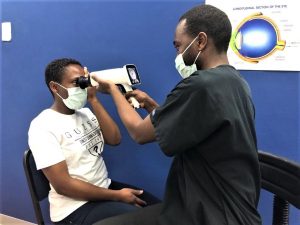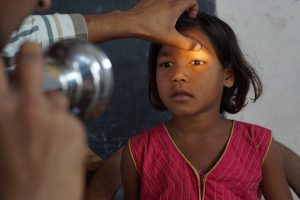Join a powerful, unprecedented alliance for better eye health for all.
Join IAPB-
Choose an alternate language here
The British Council for Prevention of Blindness (BCPB) is a very small charity funding blindness prevention education, research and mentorship programmes that benefit large and needy populations in low income countries, where help is needed most. Our combined approach helps ensure that interventions are sustainable and learning is shared widely and can be cascaded through many health professionals to achieve the greatest impact.

 BCPB’s support of emerging eye health professionals has led to high-achieving leaders in the field of blindness prevention, with our first ever Sir John Wilson Fellow Dr Ciku Mathenge from Rwanda this year receiving the International Humanitarian of the Year Award from Surgical Eye Expeditions.
BCPB’s support of emerging eye health professionals has led to high-achieving leaders in the field of blindness prevention, with our first ever Sir John Wilson Fellow Dr Ciku Mathenge from Rwanda this year receiving the International Humanitarian of the Year Award from Surgical Eye Expeditions.Our 2019/20 impact at a glance
Photo Captions
A – Health worker practising examination of a Tanzanian child’s eyes
B – Simulation surgical training
C – Diabetic retinopathy screening in Eswatini (formerly Swaziland)
D – Indian schoolgirl being screened for uncorrected refractive error